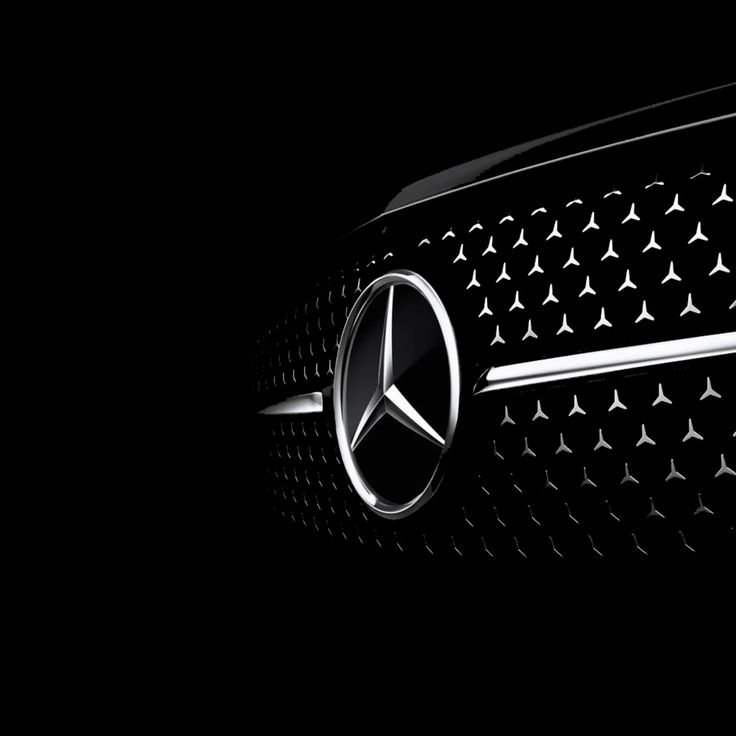
Toyota Motor Corporation and BMW, two of the world’s leading automakers, are reportedly set to upgrade their existing partnership to focus on the development of fuel cell vehicles (FCVs). According to a report by Nikkei Asia, the two companies are expected to sign a memorandum of understanding (MoU) next week, with an official announcement planned for September 5th. While a Toyota spokesperson declined to comment on the report, this potential collaboration could have significant implications for the future of the automotive industry, particularly in the realm of sustainable transportation.
This article delves into the details of the reported partnership, the significance of fuel cell technology in the automotive industry, the history of collaboration between Toyota and BMW, and what this could mean for the future of both companies and the broader market.
The Strategic Importance of Fuel Cell Technology
Fuel cell vehicles (FCVs) represent a crucial component of the broader shift towards sustainable transportation. Unlike battery-electric vehicles (BEVs), which rely on lithium-ion batteries for power, FCVs generate electricity through a chemical reaction between hydrogen and oxygen, producing only water vapor as a byproduct. This makes them an attractive option for reducing greenhouse gas emissions and dependence on fossil fuels.
The potential advantages of FCVs include:
- Longer Range: FCVs typically offer a longer driving range compared to BEVs, making them more suitable for long-distance travel.
- Quick Refueling: Refueling an FCV takes just a few minutes, similar to traditional gasoline vehicles, compared to the longer charging times required for BEVs.
- Energy Efficiency: FCVs are more energy-efficient than internal combustion engines and can utilize hydrogen produced from various sources, including renewable energy.
- Reduced Environmental Impact: The use of hydrogen as a fuel produces zero tailpipe emissions, contributing to cleaner air and reduced environmental impact.
Given these advantages, FCVs are seen as a complementary technology to BEVs in the quest for sustainable transportation. However, the widespread adoption of FCVs has been hindered by challenges such as the high cost of fuel cell technology, limited hydrogen refueling infrastructure, and the complexity of hydrogen production and distribution.
The History of Collaboration Between Toyota and BMW
Toyota and BMW have a long history of collaboration, particularly in the development of environmentally friendly technologies. The two companies first entered into a partnership in 2011, with a focus on jointly developing a range of technologies, including fuel cells, lightweight materials, and electric drivetrains. This collaboration has yielded several successful projects, including:
- Toyota Supra and BMW Z4: Perhaps the most visible product of the Toyota-BMW partnership is the development of the Toyota Supra and BMW Z4 sports cars. Both vehicles share the same platform, engine, and key components, but have been tuned to reflect the distinct characteristics of each brand.
- Joint Battery Development: Toyota and BMW have also collaborated on the development of next-generation lithium-ion batteries, which are crucial for improving the performance and range of electric vehicles.
- Fuel Cell Technology: The partnership has included joint research and development of fuel cell systems, with the goal of reducing costs and improving the efficiency of FCVs.
The reported upgrade in their partnership signals a deepening commitment to fuel cell technology, reflecting the growing importance of hydrogen as a key component of the future energy mix.
The Reported Memorandum of Understanding
According to Nikkei Asia, Toyota and BMW are expected to sign a memorandum of understanding (MoU) to formalize their upgraded partnership in the field of fuel cell vehicles. While the details of the MoU have not been publicly disclosed, the agreement is likely to outline the scope of their collaboration, including joint development projects, shared resources, and potential commercialization strategies.
The timing of this partnership is significant, as both automakers are under increasing pressure to reduce their carbon footprints and meet stringent emissions regulations in key markets such as Europe, North America, and Japan. By pooling their expertise and resources, Toyota and BMW aim to accelerate the development and deployment of FCVs, potentially positioning themselves as leaders in this emerging segment.
The Future of Fuel Cell Vehicles: Challenges and Opportunities
The decision by Toyota and BMW to upgrade their partnership in fuel cell technology reflects the growing recognition of hydrogen’s potential as a clean energy source. However, the widespread adoption of FCVs faces several challenges that must be addressed:
- Cost Reduction: The production of fuel cells and hydrogen fuel remains expensive, making FCVs less competitive with BEVs and traditional internal combustion engine vehicles. Both companies will need to focus on reducing costs through technological innovation, economies of scale, and improved manufacturing processes.
- Infrastructure Development: The lack of hydrogen refueling infrastructure is a significant barrier to the adoption of FCVs. Expanding the network of hydrogen stations will require substantial investment and coordination with governments, energy providers, and other stakeholders.
- Public Perception: While FCVs offer several advantages, public awareness and understanding of the technology remain limited. Educating consumers about the benefits of hydrogen vehicles and addressing concerns about safety and reliability will be crucial for market acceptance.
- Competition from BEVs: Battery-electric vehicles have gained significant traction in recent years, with major automakers investing heavily in BEV development. FCVs will need to carve out a niche in the market by focusing on specific use cases where their advantages, such as long range and quick refueling, are most apparent.
Despite these challenges, the collaboration between Toyota and BMW presents several opportunities:
- Leveraging Complementary Strengths: Toyota is a pioneer in hybrid and fuel cell technology, with a long history of innovation in this field. BMW, on the other hand, has extensive experience in developing high-performance vehicles and luxury brands. By combining their strengths, the two companies can create FCVs that are both technologically advanced and appealing to consumers.
- Global Market Reach: Toyota and BMW have strong global brands and extensive distribution networks. This partnership could enable them to bring FCVs to a broader audience, particularly in regions where hydrogen infrastructure is already being developed.
- Regulatory Compliance: Both companies are under pressure to meet stringent emissions targets in key markets. FCVs could play a crucial role in helping them achieve these goals, particularly in segments where BEVs may not be the optimal solution.
- Innovation and Technological Leadership: By investing in fuel cell technology, Toyota and BMW can position themselves as leaders in the next wave of automotive innovation. This could give them a competitive edge as the industry continues to evolve toward sustainable mobility solutions.
The Broader Implications for the Automotive Industry
The upgraded partnership between Toyota and BMW could have significant implications for the broader automotive industry. As more automakers explore hydrogen as a viable alternative to fossil fuels, we may see increased collaboration between companies to share the costs and risks associated with developing new technologies.
This trend toward collaboration is already evident in other areas of the industry, such as autonomous driving, where companies like Ford and Volkswagen have formed alliances to accelerate development. In the case of fuel cell technology, partnerships like the one between Toyota and BMW could help overcome the barriers to adoption by pooling resources and expertise.
Moreover, the success of this partnership could encourage other automakers to invest in FCVs, leading to a more diverse range of sustainable transportation options. This could ultimately benefit consumers by providing more choices and driving down costs through increased competition.
The Potential for Commercialization
One of the key questions surrounding the Toyota-BMW partnership is how quickly the two companies can bring fuel cell vehicles to market. Both automakers have already made significant strides in this area:
- Toyota: Toyota has been a leader in fuel cell technology for decades, with its Mirai sedan being one of the few commercially available FCVs on the market. The company has also been actively involved in promoting hydrogen infrastructure development, particularly in Japan and California.
- BMW: BMW has been exploring hydrogen fuel cell technology for several years, with its i Hydrogen NEXT concept vehicle showcasing the company’s vision for FCVs. While BMW has yet to launch a production FCV, the company’s expertise in luxury and performance vehicles could help it carve out a niche in the high-end market.
The upgraded partnership could lead to the development of new FCV models that combine Toyota’s advanced fuel cell systems with BMW’s luxury and performance features. This could appeal to consumers who are looking for a sustainable alternative to traditional internal combustion engines without compromising on quality or driving experience.
The Role of Government Policy
Government policy will play a critical role in the success of fuel cell vehicles. Many countries are already implementing policies to support the adoption of hydrogen as a clean energy source, including subsidies for FCV purchases, funding for hydrogen infrastructure, and research grants for fuel cell technology development.
For example, the European Union has set ambitious targets for reducing greenhouse gas emissions, with hydrogen expected to play a key role in achieving these goals. Similarly, Japan has been a strong proponent of hydrogen, with the government investing heavily in hydrogen infrastructure and FCV development as part of its strategy to achieve carbon neutrality by 2050.
The Toyota-BMW partnership could benefit from these supportive policies, particularly in regions where governments are committed to promoting hydrogen as part of their energy transition plans. However, the success of this partnership will also depend on the ability of policymakers to create a favorable environment for FCVs, including addressing regulatory barriers, providing incentives for consumers, and ensuring a stable supply of hydrogen.
Conclusion
The reported upgrade in the partnership between Toyota Motor Corporation and BMW marks an important step in the development of fuel cell vehicles and the broader shift towards sustainable transportation. By leveraging their complementary strengths and resources, the two automakers have the potential to accelerate the adoption of FCVs, overcome existing challenges, and set new standards for innovation in the automotive industry.
ALSO READ: Upcoming Car Launches in September 2024: A Detailed Preview







